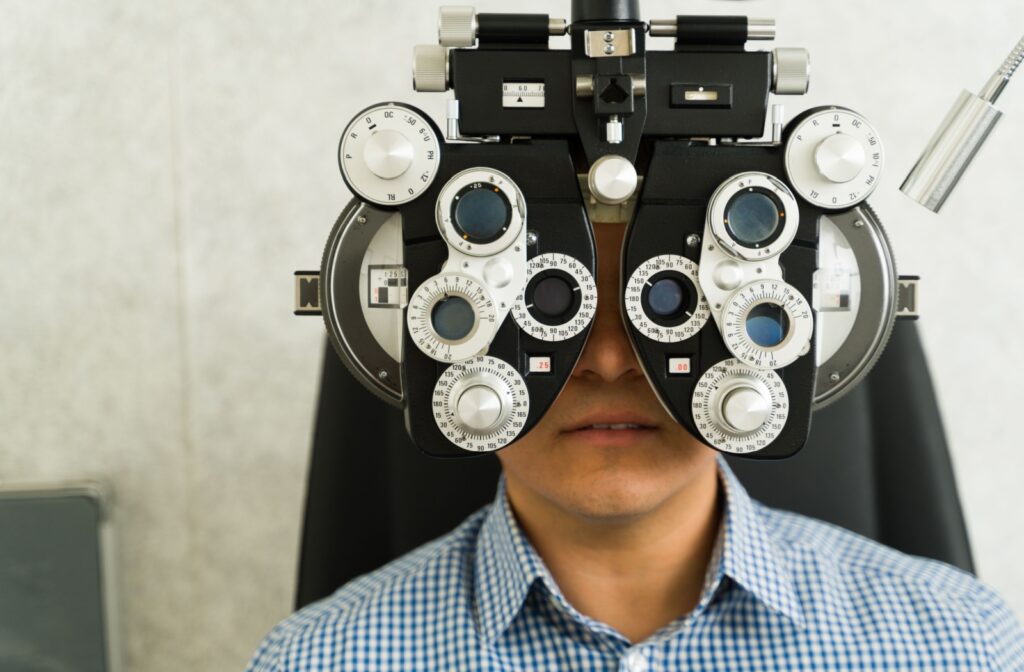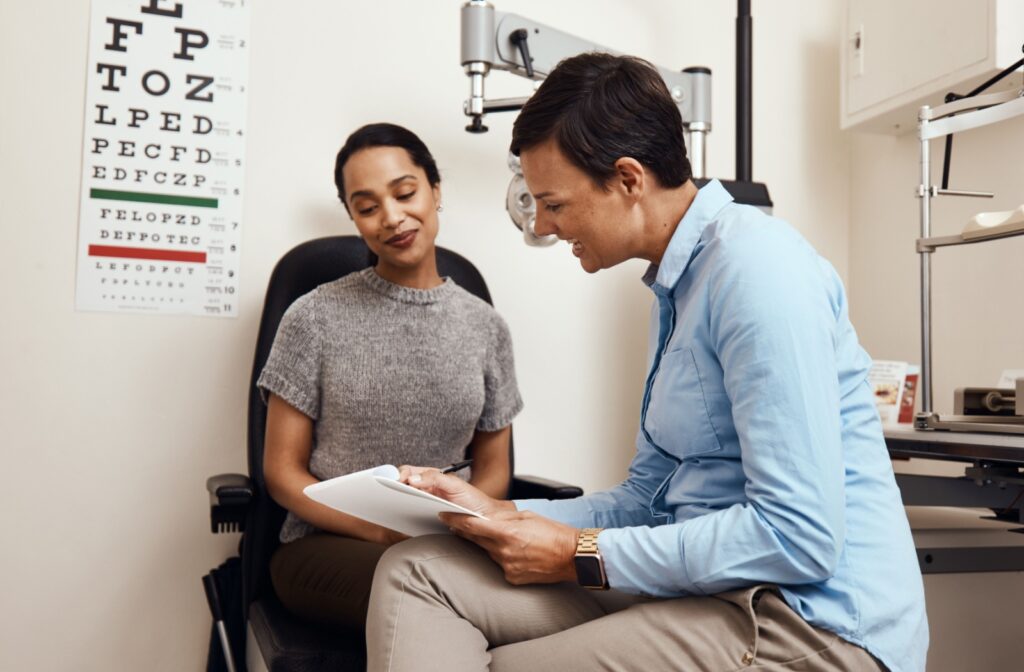While they may seem like a routine check-up, annual eye exams are essential for maintaining optimal eye health and vision. Even if you don’t wear glasses or contact lenses, regular eye exams can help detect potential eye problems early on.
But do you really need an eye exam every year? The short answer is yes. You should have a comprehensive eye exam every 1-2 years. However, the recommended frequency depends on whether or not you have existing eye conditions.
Why Annual Eye Exams Matter
Your eyes are constantly at work. Over time, they can undergo changes that may not be noticeable to you. Annual eye exams allow eye care professionals to assess your overall eye health and check for common eye conditions. Some of these conditions include refractive errors, eye diseases, and other systemic health issues that cause eye problems.
Let’s look at some of the different conditions that eye exams can detect.
Refractive Errors
Refractive errors like myopia (nearsightedness), hyperopia (farsightedness), and astigmatism are caused by your eyes reflecting light incorrectly onto the back of your eyes. These conditions respectively result in difficulty seeing things that are up close, far away, or at any distance.
Refractive errors may require corrective lenses, and may change over time. Annual eye exams allow your eye care provider to monitor your eyes and update your prescription accordingly.
Eye Diseases
Early detection of eye diseases, such as glaucoma, cataracts, and macular degeneration, is crucial for effective treatment and preserving your vision. Many eye diseases are progressive, meaning they develop slowly over time.
By keeping up with regular eye exams, your optometrist can monitor your eyes for subtle changes in health, which makes early detection easier. Skipping out on eye exams also means that you might not know that you have an eye disease until significant damage to your vision has already occurred.
Systemic Health Issues
Certain eye conditions can be indicators of underlying health problems like diabetes, high blood pressure, and autoimmune diseases. For example, one of the easiest ways to catch diabetes early on is due to changes in the health of your eye.
Who Needs More Frequent Eye Exams?
While annual eye exams are recommended for most people, others may benefit from more frequent check-ups. It’s important to follow the eye exam schedule recommended by your optometrist in order to stay on top of your eye health.
Those with pre-existing eye conditions may want to consider more frequent eye exams. If you have a history of eye problems, such as glaucoma or macular degeneration, your eye doctor may recommend more frequent exams to monitor your condition and adjust your treatment plan.
Having a family history of eye conditions can increase your risk of developing similar problems. More frequent eye exams can help identify potential issues early on.
People with diabetes are at increased risk of developing diabetic retinopathy, a serious eye condition that can lead to vision loss. Regular eye exams allow for monitoring of early signs of this condition.
As we age, our eyes undergo natural changes that can affect our vision. Regular eye exams are important for older adults to ensure that they have the best possible vision and to identify any age-related eye diseases.

What to Expect During an Eye Exam
A comprehensive eye exam typically involves several tests, including:
- Visual Acuity Test: This test measures your ability to see at different distances.
- Refraction Test: This test determines your prescription for glasses or contact lenses.
- Eye Muscle Test: This test assesses how well your eyes work together.
- Color Vision Test: This test evaluates your ability to distinguish between different colors.
- Pupil Dilation: This test allows your eye doctor to examine the health of your retina and optic nerve.
Additional Tips for Eye Health
In addition to regular eye exams, there are several steps you can take to protect your vision:
- Protect your eyes from harmful UV rays by wearing sunglasses that block 100% of UVA and UVB radiation.
- A diet rich in fruits, vegetables, and omega-3 fatty acids can help promote eye health.
- If you spend long hours in front of a computer or other digital devices, take frequent breaks to rest your eyes following the 20-20-20 rule.
- Quit smoking. Smoking can increase your risk of developing age-related macular degeneration and other eye problems.
By understanding the importance of regular eye exams and taking proactive steps to protect your vision for years to come.
Schedule Your Next Eye Exam
Keeping on top of your eye health through regular eye exams is a great way to preserve your eye health and address visual problems before they impact your vision permanently. At Golden Vision, we offer comprehensive eye exams for the whole family.
Book an appointment for your annual eye exam today at our location closest to you!












